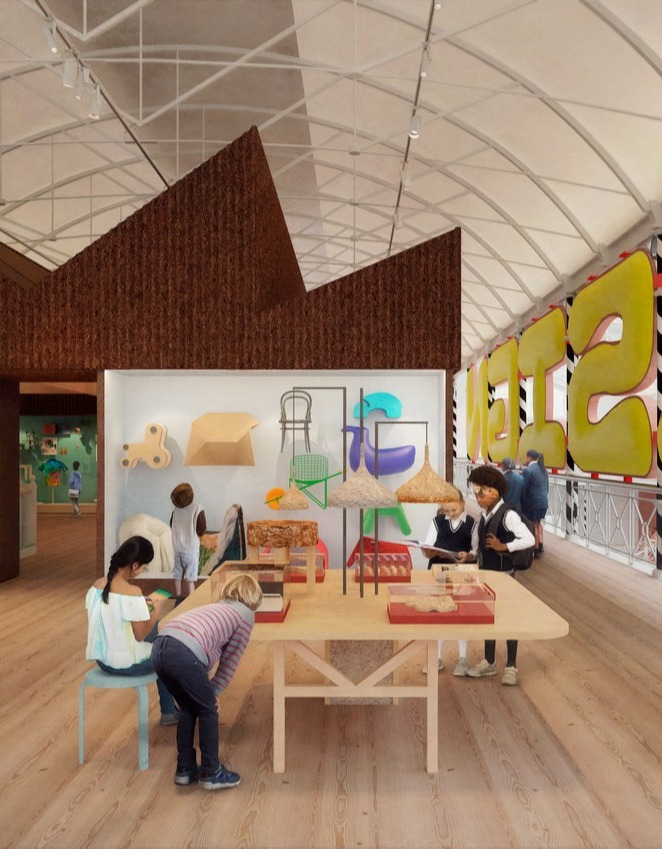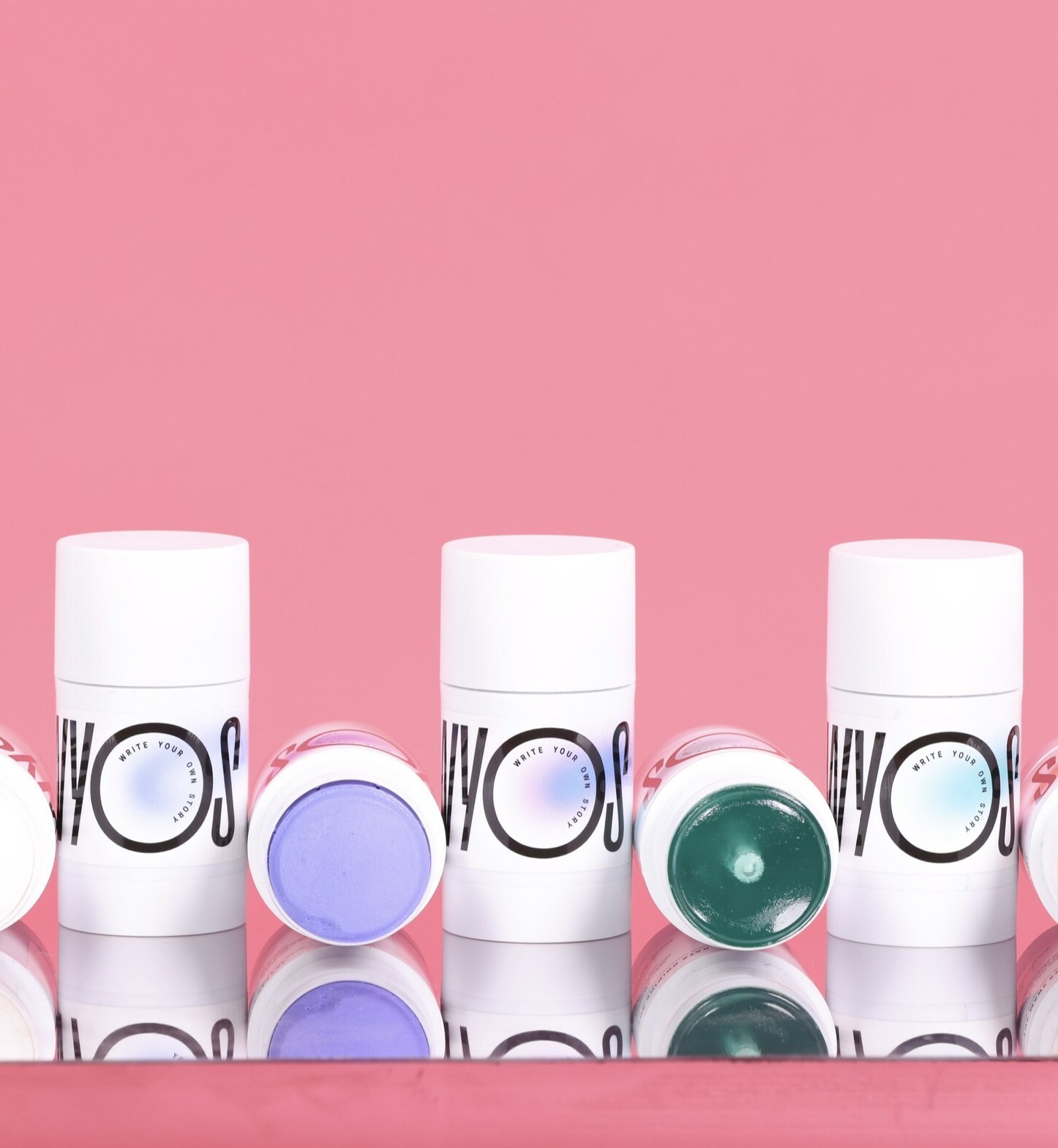03 : 02 : 23 : Weekly Debrief
This week: The Baoverse, art to inspire children to think about nature, Skims' savvy marketing move, streamlined care-routines with WYOS and nearly half of game developers sceptical of the metaverse.
3 February 2023
Author: The Future Laboratory
Image: Baoverse app designed by Hato for Bar, UK
Share
𝕏
1. Bao restaurant creates its own digital universe
UK – The Bao restaurant chain, which grew from an East London market stall, now has its own digital universe.
The Baoverse was created by design studio Hato and drawn by Marcelo Colmenero, and is a tiny bustling pixel city where everyone starts as a Tourist and gradually levels up to Resident, Citizen and finally Family, depending on how many Bao destinations they’ve visited in real life. Users earn digital currency, Baocoin, when they spend money at Bao, which unlocks digital and physical rewards, including the ability to skip restaurant queues or get free cocktails.
Baoverse is the first venture from Not In Game, a new hospitality tech platform that co-founder Ken Kirton says is an attempt to disrupt the loyalty app industry by creating a more seamless experience between the customer and restaurant. The app hopes to bridge the gap between online and offline purchases – a T-shirt bought at a Bao restaurant would also mean a digital version for your app avatar.
In Betterverse Bites we’ve seen how food brands move to virtual realms to educate consumers but these spaces can also be used to connect playfully and build loyalty through having fun.
2. The Wild Escape project inspires children to think about nature
Over 500 UK museums are collaborating on The Wild Escape, a project launched by the UK’s leading arts charity, Art Fund, to engage schoolchildren in thinking about nature and climate change. The UK’s largest-ever museum collaboration takes place from January to July 2023. Participating institutions will host a range of nature-based art activities both in person and online. The project will encourage 7–11-year-olds to visit museums with their families and through school to seek out wildlife-inspired art. They’ll be prompted to create their own artworks, which will form part of a huge-scale display to be unveiled on Earth Day 2023. Leading artists, including Es Devlin, Rana Begum and Yinka Shonibare, will also create works inspired by animals in the museums’ collections. The project is inspired by Wild Isles, a BBC series hosted by David Attenborough.
The World Wildlife Fund (WWF) reports that England is one of the most nature-depleted countries in the world, with a quarter of its mammals and almost a fifth of UK plants facing the threat of extinction. ‘Young people are key to shaping the nature of the natural world,’ says Rosalind Mist, director of education and youth management at WWF.
While The Zalpha Generation have a deeper relationship with the planet than previous generations, projects like The Wild Escape allow them to personalise their sense of responsibility towards it.
 Young V&A, UK
Young V&A, UK
3. What marketers can learn from Skims’ campaign starring The White Lotus actors
US – Riding on the success of HBO’s The White Lotus, underwear brand Skims has featured the series’ rising stars Simona Tabasco and Beatrice Grannò in its already viral Valentine’s Day campaign.
Kim Kardashian’s lingerie and shapewear brand Skims has unveiled a campaign with fan-favourite actors who played Lucia and Mia on the cult show, modelling the Fits Everybody collection. The campaign celebrates friendship, women and feeling empowered and confident in your own skin. The activation is outperforming previous campaigns on Instagram and TikTok, where the video racked over 1.2m views, compared to the 40,000–70,000 views Skims content usually averages.
In a savvy marketing move, the campaign doesn’t owe its success solely to celebrity endorsement. The affinity viewers have for the pair and their relatability and youthful spontaneity taps into another shift: striving for the real over the perfect.
Pop culture’s influence on fashion is off the charts. Think: Netflix's Bridgerton birthing Regency core, Eurphoria’s influence on beauty or the goth revival triggered by Netflix's Wednesday. But the partnership ticks other boxes too, namely with its emotional and relatable messaging on body positivity. Overall, its candid quality fits into what young consumers want from the lingerie sector.
 WYOS, US
WYOS, US
4. Beauty brand WYOS inspires self-compassion with streamlined care routines
US – The beauty and skincare landscape can be overwhelming to navigate. As a response, newly launched WYOS has created easy-to-use and convenient skincare and haircare in a no-mess, no-waste stick format.
WYOS, which stands for Write Your Own Story, was created to introduce a breath of fresh air to skincare and haircare. Rooted in simplicity and convenience, WYOS launched five ‘take anywhere’ sticks: cleanser, mask, shampoo, shaving suds and moisturiser.
Beyond a less-is-more product ethos, WYOS advocates for kindness and self-love. As such, the brand asks its community to agree to a set of POVs (Pledge of Values), a mock contract stating commitment to: 1) An Attitude of Gratitude, 2) A No Ghosting Guarantee and 3) Connect with Respect. For each pledge, WYOS will donate £0.80 ($1, €0.90) to The Madhappy Foundation, an NGO in the mental health space.
This feel-good, playful and wellness-orientated approach is sure to land well with visual-first, pragmatic and mental health minded youth, who are carving a new space in beauty and skincare
5. Stat: 45% of game developers say they don’t believe in the promise of the metaverse
The annual report of the Game Developers Conference (GDC), released ahead of GDC 2023, reveals that the metaverse hype of the past year has left many game developers unenthused.
In the State of the Game Industry survey, 45% of game developers say they don’t believe in the promise of the metaverse, up from 33% in 2022. The key reason game developers gave for their scepticism is that they don’t feel the digital space has defined itself clearly enough. But they also believe that its lack of substantial interactivity and the current high cost of hardware (VR headsets in particular) are barriers to metaverse entry.
In The Betterverse we explored the broad potential of the metaverse – especially as a more ethical digital space. Scepticism is understandable and can also be read as a feeling of being overwhelmed. As all industries grapple with the possibilities of the metaverse, they face daunting questions about what to create and how to fit in.
To future-proof your world, visit The Future Laboratory's forecasting platform LS:N Global for daily news, opinions, trends, sector specific insights, and strategic toolkits.
Want to read more?
Become a member today!
Sign up to one of our trends intelligence platform, LS:N Global and get unlimited access to a hive of insights - from microtrends and macro trends to market reports, daily news, research across eight industry sectors and much more.
Discover our memberships
Already a member? Click here to login
